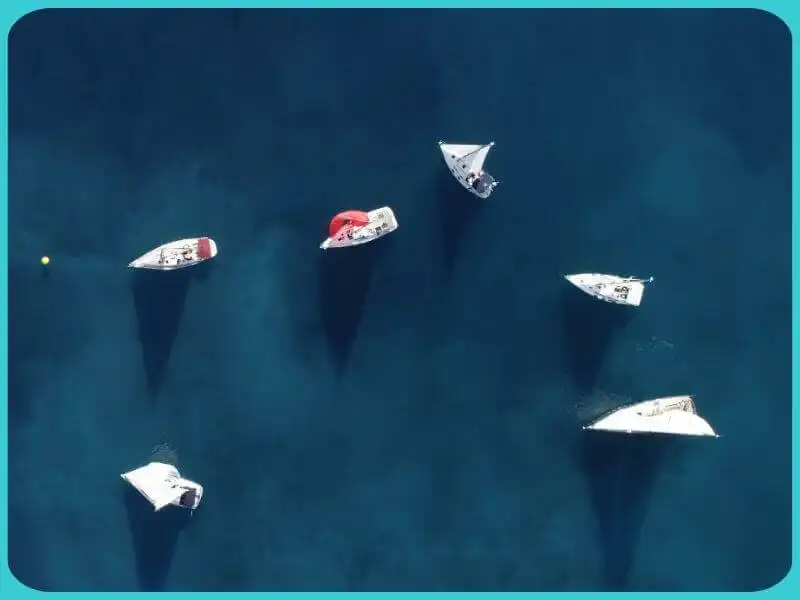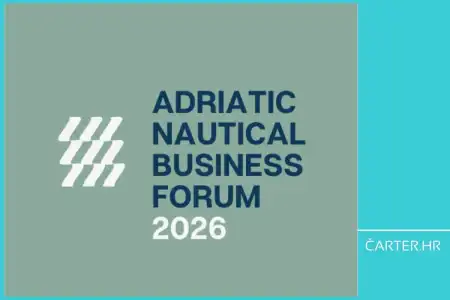
How many times have you heard in the company the sentence: “Post something on Facebook so people can see us”? At first it sounds harmless, but behind it lies a serious question - is that really your marketing? In the yacht charter industry more and more companies remain at that level. A few photos, the occasional post and the feeling that “something is being done.” But when the season ends and the line is drawn, the result is the same - it is too little…
Who in your company runs marketing? If the answer is “nobody in particular,” you are not the only one. In most yacht charter companies marketing comes down to side tasks - someone posts a few photos during the season, or writes an occasional post on Facebook or Instagram and that is where the story ends.
On paper it looks like social media presence, but in practice it is thought of as marketing. There is no plan, goal or consistency… There is no marketing expert. The question is can we even call that marketing or just improvisation without a goal?
If you are doing serious business, shouldn’t marketing also be serious?

Why marketing in yacht charter remains “on the fly”
Yacht charter companies have a natural tendency to focus on what can be seen and done; boats, marina, crew, bookings, service. Everything else often falls into the background. Marketing is among the first on that list.
For years it was enough to leave sales to agents and appear on booking systems. Many companies still think that way: “Why should I pay a marketing expert when the agent/system is already selling my boats?” The problem with this approach is that you are then dependent on other people’s channels and you have no control over your own brand.
When marketing is run “on the fly,” several things usually happen:
- Posts on social media have no plan or link with goals.
- Nobody systematically responds to messages and comments.
- Photos and videos are of poor quality or outdated.
- Guests receive inconsistent information from different channels.
- Results are not monitored, so it is not known what works and what does not.
- Such an approach results in you being “invisible” or looking unprofessional. And guests recognize that very quickly.

Why marketing is not a “cost” but an investment
One of the common arguments is: “We don’t have a budget for marketing.” But the question is - how much does an unfilled week in May or September cost you? How much does dependence on an agent and a 15-20% commission cost you?
Digital marketing is not a cost, but an investment that brings returns. Every well-set advertisement, newsletter or post can bring a guest. The only difference is whether it is run by a marketing expert who knows what they are doing or someone who does it “by feeling.”
One person dedicated to marketing can make the difference between a company that survives and one that grows.

What do you lose if marketing is run “on the fly”
You may think it is fine for someone from reception or a colleague from the base to “throw something on Instagram”... From your perspective, you have a presence on social media.
But let’s look at what is actually lost when marketing is not anyone’s real responsibility:
- Time - someone who does something “on the fly” already has their primary tasks. Marketing is a burden to them, which they postpone or do in a hurry. That means the job they are skilled at suffers, and marketing remains half-done.
- Continuity - while the season is calm, maybe there is time for posts. But as soon as the rush starts, marketing is the first to drop. Profiles remain empty precisely when they should be most visible.
- Quality - photos and texts done in a rush, just to have something, do not leave a serious impression. Your communication should look professional. Poor visuals and superficial descriptions leave the impression that the rest of the service is also not at a high level.
- Results - without a clear plan and monitoring of results, you have no information about what exactly is of any use. Time and energy are spent, and you have no data on how many inquiries came from which channel.
- Reputation - unprofessionally managed marketing reflects on the perception of your company. If a guest perceives you as unprofessional, the question is whether they will trust you when the time comes to pay several thousand euros for a yacht charter. Reputation is built for years, and destroyed very quickly…

So what does professional marketing look like?
Marketing becomes a real function in the company only when it is clearly defined what is expected from it and who takes responsibility for it. We have already written that a professional approach does not mean only posts on social media, but a whole system in which a marketing expert connects goals, plans and results.
The minimum framework looks like this:
- One person responsible for marketing - this can be an internal employee, an external marketing expert or a marketing agency. What matters is that there is someone who monitors all channels, manages communication and keeps everything in hand. If there is no specifically assigned role, marketing always remains somewhere “in between” and never delivers full effect.
- Annual plan - instead of ad hoc posts, a schedule is made in advance. The plan includes seasonal campaigns, special offers and topics that are communicated throughout the year. This achieves consistency, and guests always have fresh information about the offer.
- Digital marketing - professional marketing includes regular ads on Google and social media. Their task is to attract new guests and remind old ones of the offer. It is important that ads are not random, but targeted at those who are at that moment looking for a yacht charter in Croatia.
- Content - good photos and video materials, well-written texts and blogs, and newsletters that stay in touch with guests build trust and show that you know what you are doing.
- Measurement - marketing never goes “by feeling.” There are reports that clearly show how many inquiries have arrived, how many bookings were concluded and what the ROI (return on investment) is. Without numbers you don’t know what works and what needs to change.
When such a system is established, marketing ceases to be a side activity and becomes part of the business strategy. You gain recognition, a professional image and competitiveness that is directly reflected in booking and revenues.
Practical examples
Companies that have invested in professional marketing have had an advantage over the competition for years, for example:
Direct inquiries instead of dependence on other channels
If you invest in digital marketing and build your own sales channels, you will receive more direct inquiries and be less dependent on agents. This way you keep greater control over revenues and reduce commission costs.
Stronger brand - higher prices
If you build consistent communication and quality content, from photos and videos to texts, you will get a stronger brand. Guests will perceive you more seriously and be willing to pay more because they trust the value you offer.
Better occupancy outside the season
If you use marketing also for pre-season and post-season, and not only for July and August, you will achieve better occupancy outside the peak. That means additional rental weeks in May or September, when the boat would otherwise be idle.
If you do marketing only “when there’s time,” you will get zero real results. You will have the impression that online channels don’t work, even though you actually never gave them a chance.

Serious business requires serious marketing
Marketing as a function means that someone looks at the bigger picture and connects all the dots. And that cannot be done on the way, when someone “finds time.” If you run a serious business, you need serious marketing and an expert for that very marketing.
Croatian yacht charter is becoming more and more competitive, and guests come with clear expectations - they want quality, safety and an experience worth the money they invest. The difference between “having an Instagram profile” and “doing marketing” is measured in real bookings and revenues, and that is something no one can ignore.
Marketing in no way can or should be a side obligation or an occasional post on social media. Marketing requires a professional who knows how to connect digital marketing with sales, reputation and long-term company goals.
It is time for a decision - either you do marketing randomly and watch the competition take your guests, or you set it up professionally and build a stable business. The choice is not between cost and savings, but between growth and stagnation.

If you are looking for a marketing expert for your yacht charter company, contact us. We will talk about your needs and show you concrete steps you can take.
Sign up for our newsletter and be the first to receive expert articles, advice, examples and tools on how to improve your yacht charter business.
Categories of trends
- News
- Sale
- Marketing
- SEO
- Web design
- Social media
- Technology
- Regulations
- Management
- Education
- Finances
- User experience
Newsletter
Sign up for the newsletter and receive the latest trends and tips straight to your inbox




